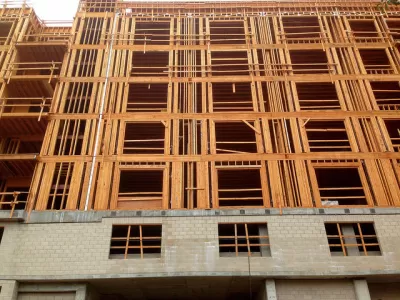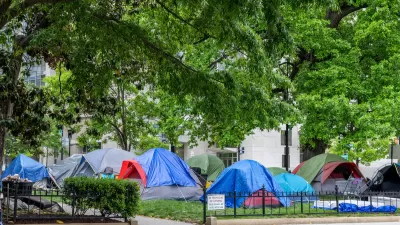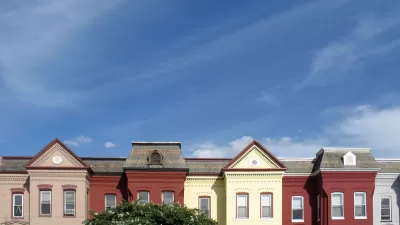A list of responses to the statement, "We Can't Build Our Way Out of This Problem."

By Michael Buonocore
For well over a decade, I’ve heard many people I admire and respect say, “We can’t build our way out of this problem,” referring to the national affordable housing shortage or the homelessness crisis. It’s always spoken in a very matter-of-fact way, like how you’d say, “There sure is a lot of air outside today,” or “Madonna’s been on a creative decline ever since she released Ray of Light.” It’s so obvious, it’s barely worth mentioning, and yet, people do. A lot.
Not the Madonna thing. The housing thing. I didn’t think much about it when I heard it for the first several years, I just nodded seriously and waited for whatever came next. Over time, I noticed that everyone seemed to start the sentence the same, but end it differently and vaguely: “Well, we can’t build our way out of this problem, so we’re going to have to get creative,” or “We can’t build our way out of the homeless crisis, so we might as well have tacos for dinner.” At some point, I realized I didn’t even know why people were using this phrase or what it meant. Rather than ask, I decided to make a list of possible translations and my own handy response to each.
- “We have failed for many decades to build the affordable housing we need, so I’m resigned to the idea that we will continue to fail.”
That’s not the kind of can-do attitude that put a person on the moon. This is America. We failed for over 200 years to provide marriage equality and things didn’t change from a bunch of people saying, “Well, we can’t marry our way out of this problem.” Put on your fix-it pants! - ...
FULL STORY: We Can Totally Build Our Way Out of This Problem

Planetizen Federal Action Tracker
A weekly monitor of how Trump’s orders and actions are impacting planners and planning in America.

Map: Where Senate Republicans Want to Sell Your Public Lands
For public land advocates, the Senate Republicans’ proposal to sell millions of acres of public land in the West is “the biggest fight of their careers.”

Restaurant Patios Were a Pandemic Win — Why Were They so Hard to Keep?
Social distancing requirements and changes in travel patterns prompted cities to pilot new uses for street and sidewalk space. Then it got complicated.

Platform Pilsner: Vancouver Transit Agency Releases... a Beer?
TransLink will receive a portion of every sale of the four-pack.

Toronto Weighs Cheaper Transit, Parking Hikes for Major Events
Special event rates would take effect during large festivals, sports games and concerts to ‘discourage driving, manage congestion and free up space for transit.”

Berlin to Consider Car-Free Zone Larger Than Manhattan
The area bound by the 22-mile Ringbahn would still allow 12 uses of a private automobile per year per person, and several other exemptions.
Urban Design for Planners 1: Software Tools
This six-course series explores essential urban design concepts using open source software and equips planners with the tools they need to participate fully in the urban design process.
Planning for Universal Design
Learn the tools for implementing Universal Design in planning regulations.
Heyer Gruel & Associates PA
JM Goldson LLC
Custer County Colorado
City of Camden Redevelopment Agency
City of Astoria
Transportation Research & Education Center (TREC) at Portland State University
Camden Redevelopment Agency
City of Claremont
Municipality of Princeton (NJ)





























